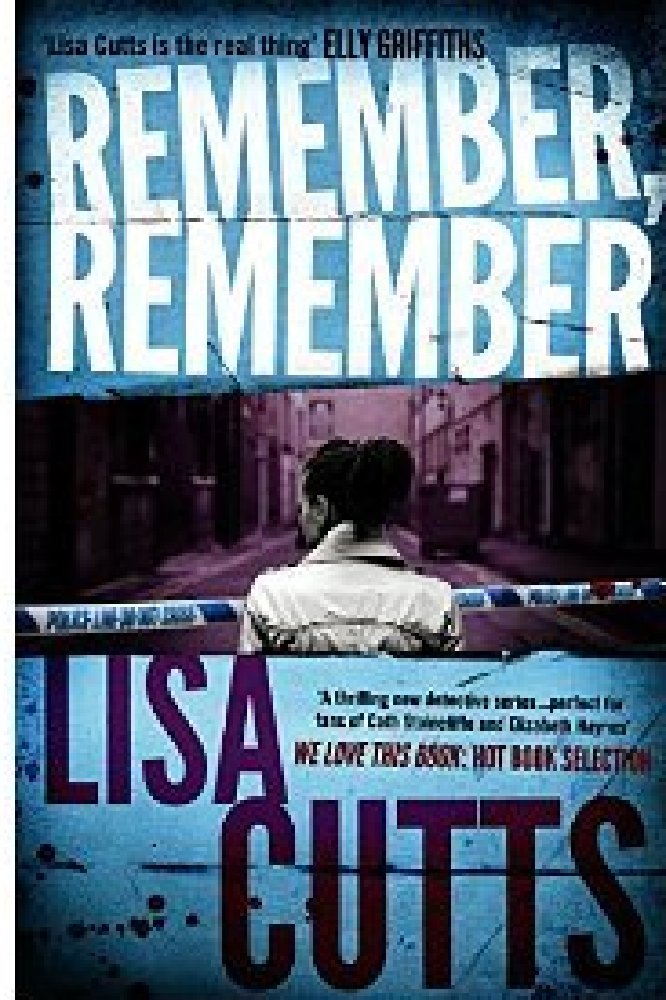
Remember, Remember
Remember, Remember is the second in the Detective Constable Nina Foster series. In this one, she returns to work after a short time away, and works alongside a couple of her old friends and colleagues from Never Forget. There’s a few new characters introduced along the way too.
Nina is sent to work in the Cold Case team, dealing with unsolved crime, and she’s given a fifty-year-old train crash to look at. It’s not long before she’s uncovered new evidence to suggest that it wasn’t an accident, and also finds herself investigating burglars, handlers of stolen goods, football corruption and drugs overdoses. She soon becomes embroiled with the criminal empire of the Rumbly family who will stop at nothing to put an end to those who stand in their way.
I wanted to make it different from the first book in the series so introduced an historic crime, mixed with present day offences.
Please tell us about the character of DC Nina Foster.
She’s honest, fun, hard-working and normal. I never wanted her to be part police officer, part superhuman. She gets tired, sometimes grumpy, she’s very cynical, but does the best job she can. It was so important to me that people liked her and understood her. I’ve had a lot of positive feedback about her – especially her humour.
This is the second crime novel in the series, so what can you tell us about the first, Never Forget?
It follows Nina’s first murder investigation and without giving too much away, it becomes a serial killing. Along with the long hours and learning as she goes, she’s also trying to find time for her family, friends and a new relationship. The main focus of the book is the business of murder, but to keep her as a real down-to-earth person, I had to bring in the human element. This doesn’t distract from the investigation and the hunt for the killer.
How much does your work aid your writing?
Very much so. When you know something well, such as murder investigation, it’s easier to write about it than carry out lots of research and try to create a world you’ve never been part of. Also, every murder or major crime investigation I’ve worked on, has taught me something new. My books are in no way based on actual jobs I’ve worked on, but being at work sparks ideas. I also work with some very funny and sharp-witted people who provide some of the amusing stories and anecdotes.
How do you juggle your work life with your writing life?
As I work full-time and often unpredictable hours, I write whenever I can before or after work. I have to make full use of my days off and annual leave. It’s not a case of feeling inspired on any particular day or not being in the mood. When I have a spare half an hour or eight hours, I have to sit down and write. The disciplined aspect of my job as a police officer has adjusted me to that over the years. And I also have a very understanding husband.
Never Forget won the Writer’s Retreat Competition, so how did that affect your confidence as a writer?
It was an amazing boost. It was the first crime fiction novel I’d written and I had truly had no idea if anyone would want to read it. That’s not modesty on my part, I just didn’t think I stood a chance; I only entered the competition because I hoped for some feedback on my entry as to how I could improve my writing.
Winning meant so much to me because it meant other people liked my work. I also won a week in the beautiful grounds of West Dean. A whole week of writing with nothing else to do was superb and it was there I wrote the first part of Remember, Remember.
Law is in your family, so how much have they helped you in your writing process?
My husband was a police officer for thirty-one years. He gets to read the first draft of everything, whether he wants to or not. Like a lot of police officers, he’s straight-talking and cynical. If he thinks I’ve got something wrong, is confused by something I’ve written or just doesn’t like aspects of it, he’ll tell me. As tempting as it is to defend what I’ve written, he offers good and honest advice, from a police officer’s perspective, and if I’m not prepared to listen, there’s little point in asking him.
It also means that when he tells me that a novel or article is good, I know that he means it.
My dad was in the Metropolitan police for thirty years so checking with him gives me a balanced view of how another force would work. I also have friends currently serving in many other police forces and not much differs wherever you are in the country.
What is next for you?
I’d like to do something slightly different next, but still along the lines of a police procedural series. That’s taking shape in my head but finding the time to write it is something else entirely.
I’m also very keen to write more Nina Foster. I have two firm ideas for her and what she’s going to be facing in the near future, as well as a couple of others creeping into my mind. I think that she’s going to be one busy detective for some time to come.

